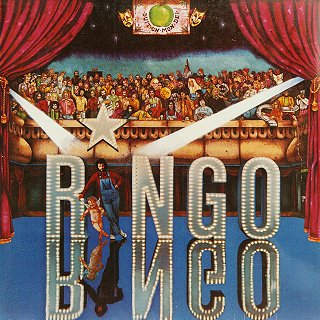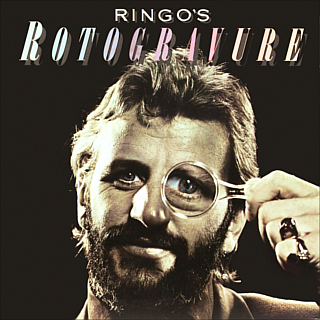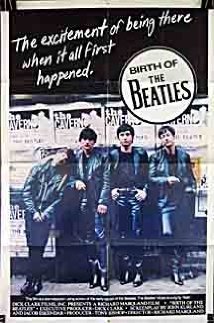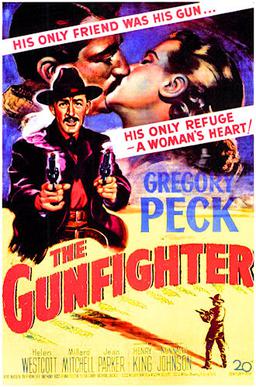
Sir Richard Starkey, known professionally as Ringo Starr, is an English musician, songwriter and actor who achieved international fame as the drummer for the Beatles. Starr occasionally sang lead vocals with the group, usually for one song on each album, including "Yellow Submarine" and "With a Little Help from My Friends". He also wrote and sang the Beatles songs "Don't Pass Me By" and "Octopus's Garden", and is credited as a co-writer of four others.

Stagecoach is a 1939 American Western film directed by John Ford and starring Claire Trevor and John Wayne. The screenplay by Dudley Nichols is an adaptation of "The Stage to Lordsburg", a 1937 short story by Ernest Haycox. The film follows a group primarily composed of strangers riding on a stagecoach through dangerous Apache territory.
The Legacy of the Aldenata, also known as the Posleen War Series, is the fictional universe of one of John Ringo's military science fiction series.

John Peters Ringo was an American Old West outlaw loosely associated with the Cochise County Cowboys in frontier boomtown Tombstone, Arizona Territory. He took part in the Mason County War in Texas during which he committed his first murder. He was arrested and charged with murder. He was affiliated with Cochise County Sheriff Johnny Behan, Ike Clanton, and Frank Stilwell during 1881–1882. He got into a confrontation in Tombstone with Doc Holliday and was suspected by Wyatt Earp of having taken part in the attempted murder of Virgil Earp and the ambush and death of Morgan Earp. Ringo was found dead with a bullet wound to his temple which was ruled a suicide. Modern writers have advanced various theories attributing his death to Wyatt Earp, Doc Holliday, Frank Leslie or Michael O'Rourke.

Ringo is the third studio album by English musician Ringo Starr, released in 1973 on Apple Records. It peaked at No. 7 on the UK Albums Chart and No. 2 on the Billboard 200 and has been certified platinum by the RIAA. In Canada, it reached No. 1 on the RPM national albums chart.
The Great American Songbook is the loosely defined canon of significant 20th-century American jazz standards, popular songs, and show tunes.
"Devil in His Heart" is a song written by Richard B. Drapkin, who recorded under the name Ricky Dee.

Ringo's Rotogravure is the fifth studio album by Ringo Starr, released in 1976. It was the last project to feature active involvement from all four former Beatles before John Lennon's murder in 1980, and the second of two projects following the band's 1970 breakup to hold the distinction. Following the end of his contract with EMI, Starr signed on with Polydor Records worldwide.

Birth of the Beatles is a 1979 American biographical film, produced by Dick Clark Productions and directed by Richard Marquand. It was shown as a TV film on ABC in the United States, and received a theatrical release in other countries. The film focuses on the early history of the Beatles. It was released nine years after the Beatles disbanded, and is the only biographical film about the band to be released while all four members were alive. Pete Best, the Beatles' original drummer, served as a technical advisor for the production.

Ringo the 4th is the sixth studio album by English musician Ringo Starr, released on 20 September 1977. Its title is sometimes ascribed to him being the fourth member of the Beatles. Others have suggested that it is his fourth mainstream album, which excludes his Great American Songbook homage, Sentimental Journey, and his country-western foray, Beaucoups of Blues. However, Ringo the 4th is a dance-oriented record, crafted for him by his Atlantic Records producer, Arif Mardin.

The Gunfighter is a 1950 American Western film directed by Henry King and starring Gregory Peck, Helen Westcott, Millard Mitchell and Karl Malden. It was written by screenwriters William Bowers and William Sellers, with an uncredited rewrite by writer and producer Nunnally Johnson, from a story by Bowers, Roger Corman, and screenwriter and director Andre de Toth. The film was the second of King's six collaborations with Peck.

Help! is a 1965 British musical comedy-adventure film directed by Richard Lester, starring The Beatles and featuring Leo McKern, Eleanor Bron, Victor Spinetti, John Bluthal, Roy Kinnear and Patrick Cargill. The second film starring the Beatles following Lester's A Hard Day's Night, Help! sees the group struggle to protect Ringo Starr from a sinister eastern cult and a pair of mad scientists, all of whom are obsessed with obtaining a sacrificial ring sent to him by a fan. The soundtrack was released as the band's fifth studio album under the same name.

Matt Bissonette is an American bass player and vocalist. According to Guitar 9, an online musicianship magazine, he has played bass and other stringed instruments on at least 22 albums, with music styles ranging from jazz, jazz fusion, progressive metal and instrumental rock. Bissonette has played bass with performers such as David Lee Roth (1987–1992), Jeff Lynne and ELO (2001), Ringo Starr (2003–2005), Elton John (2012–2023). Off the Record", Exploring, May 1988, p. E10, retrieved 2011-07-23</ref> He is the brother of drummer Gregg Bissonette.

"Hey! Baby" is a song written by Margaret Cobb and Bruce Channel, first recorded at Clifford Herring Studios in Ft. Worth Tx, and recorded by Channel in 1961, first released on LeCam Records, a local Fort Worth, Texas label. After it hit, it was released on Smash Records for national distribution. Channel co-produced the song with Major Bill Smith and released it on Mercury Records' Smash label. It reached number 1 on the Billboard Hot 100 for three weeks, starting the week ending March 10, 1962.

Ringo Starr & His All-Starr Band is a live rock supergroup founded in 1989 with shifting personnel, led by former Beatles drummer and vocalist Ringo Starr.

The videography and filmography of British singer, songwriter and pianist Elton John consists of 181 music videos and 17 video albums.
Devil Woman may refer to:

"Devil's Radio" is a song written by George Harrison that was first released on Harrison's 1987 album Cloud Nine. It was not released commercially as a single, but a promotional single was released and the song reached #4 on the Billboard Album Rock Tracks chart.

Everyday Chemistry is a remix album that was made available as a free digital download on 9 September 2009. The album was released along with a story of anonymous authorship. It mashes up various songs from the Beatles' individual solo careers, including tracks from 27 albums. The album portrays itself as being taken from an alternative universe in which the Beatles had not broken up.















